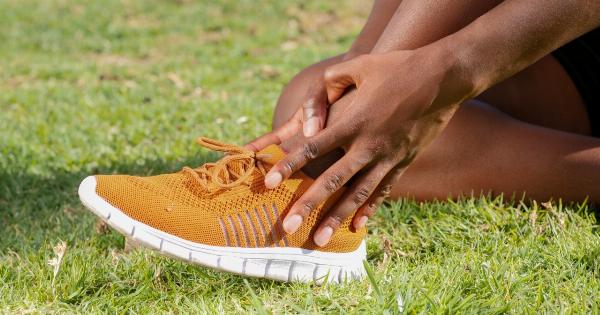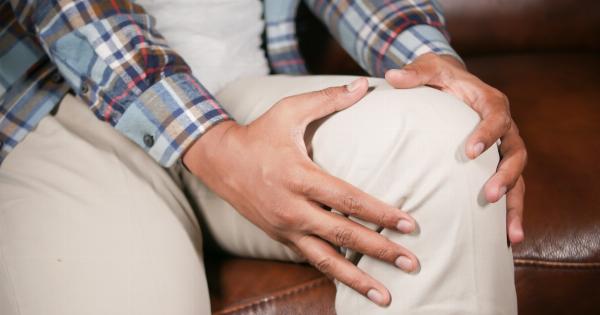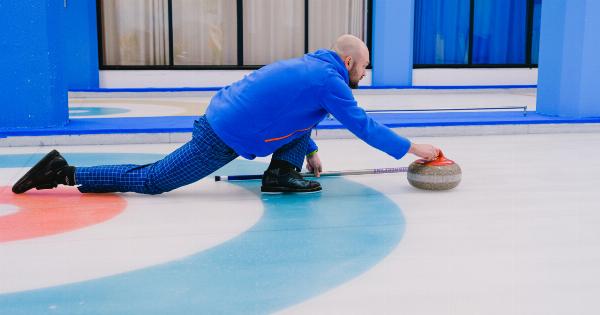As we go about our daily activities, our knees bear the brunt of our body weight and movement. It is no wonder that knee pain is a common complaint amongst people of all ages.
Whether it be due to injury, overuse, arthritis, or other underlying conditions, finding ways to alleviate knee pain is essential for maintaining an active and pain-free lifestyle.
1. Rest and Elevate
One of the simplest and most effective ways to soothe knee pain is by giving your knees a rest and elevating them. When you rest, you allow your knees to recover from any strain or inflammation.
Elevating your knees, by propping them up with a pillow or cushion, helps reduce swelling by allowing fluid to drain away from the affected area.
2. Apply Ice
Ice is a fantastic natural pain reliever and anti-inflammatory agent. Applying an ice pack or a bag of frozen peas wrapped in a thin towel directly to the affected area can significantly reduce knee pain and swelling.
Ensure you only apply ice for around 15 minutes at a time, with at least an hour between each application, to avoid damaging your skin.
3. Heat Therapy
In some cases, heat can work wonders for soothing knee pain. Heat therapy helps increase blood flow, relax muscles, and alleviate stiffness. You can apply heat to your knees by using a heating pad, warm towel, or taking a warm bath.
However, avoid using heat if your knee pain is accompanied by swelling, as it can make the inflammation worse.
4. Use Compression
Compression is a beneficial technique that can help reduce swelling and provide support to your knees. Knee sleeves or elastic bandages can be used to apply gentle pressure to the affected area, improving stability and reducing pain.
Make sure not to wrap the compression too tightly, as it can restrict blood circulation and cause further discomfort.
5. Maintain a Healthy Weight
Carrying excess weight puts additional stress on your knee joints, making them more susceptible to pain and injury. By maintaining a healthy weight through regular exercise and a balanced diet, you can significantly reduce the strain on your knees.
Losing even a few pounds can make a noticeable difference in the amount of pain experienced in your knees.
6. Strengthen Your Muscles
Building strength in the muscles surrounding your knees can provide essential support and stability, reducing knee pain. Exercises such as squats, lunges, leg lifts, and hamstring curls can help improve muscle strength and flexibility.
However, ensure you consult with a healthcare professional or a physical therapist before starting any exercise program, especially if you have existing knee pain or injuries.
7. Modify Your Activities
If certain activities or exercises trigger knee pain, consider modifying them to avoid unnecessary strain on your knees. For example, if running causes discomfort, try lower-impact exercises like cycling or swimming.
Additionally, using proper form and technique during activities can help prevent knee pain. Avoid sudden or repetitive movements that may put excessive stress on your knees.
8. Supportive Footwear
The type of footwear you choose can significantly impact your knee health. Invest in shoes that provide proper arch support and cushioning to help absorb shock and reduce the strain on your knees.
If necessary, orthotic inserts or custom-made shoe inserts can further enhance support and alleviate knee pain.
9. Try Physical Therapy
If you have persistent or severe knee pain, seeking help from a physical therapist can be highly beneficial. Physical therapy involves exercises, stretches, and other techniques to improve knee strength, flexibility, and range of motion.
Additionally, a physical therapist can provide guidance on proper body mechanics and help you develop an individualized plan to manage and alleviate knee pain.
10. Consider Over-the-Counter Medications
If your knee pain is mild and not caused by any underlying conditions, over-the-counter pain relievers can provide temporary relief.
Nonsteroidal anti-inflammatory drugs (NSAIDs), such as ibuprofen or naproxen sodium, can help reduce pain and inflammation. However, it is essential to follow the recommended dosage and consult with a healthcare professional if you have any concerns.






















